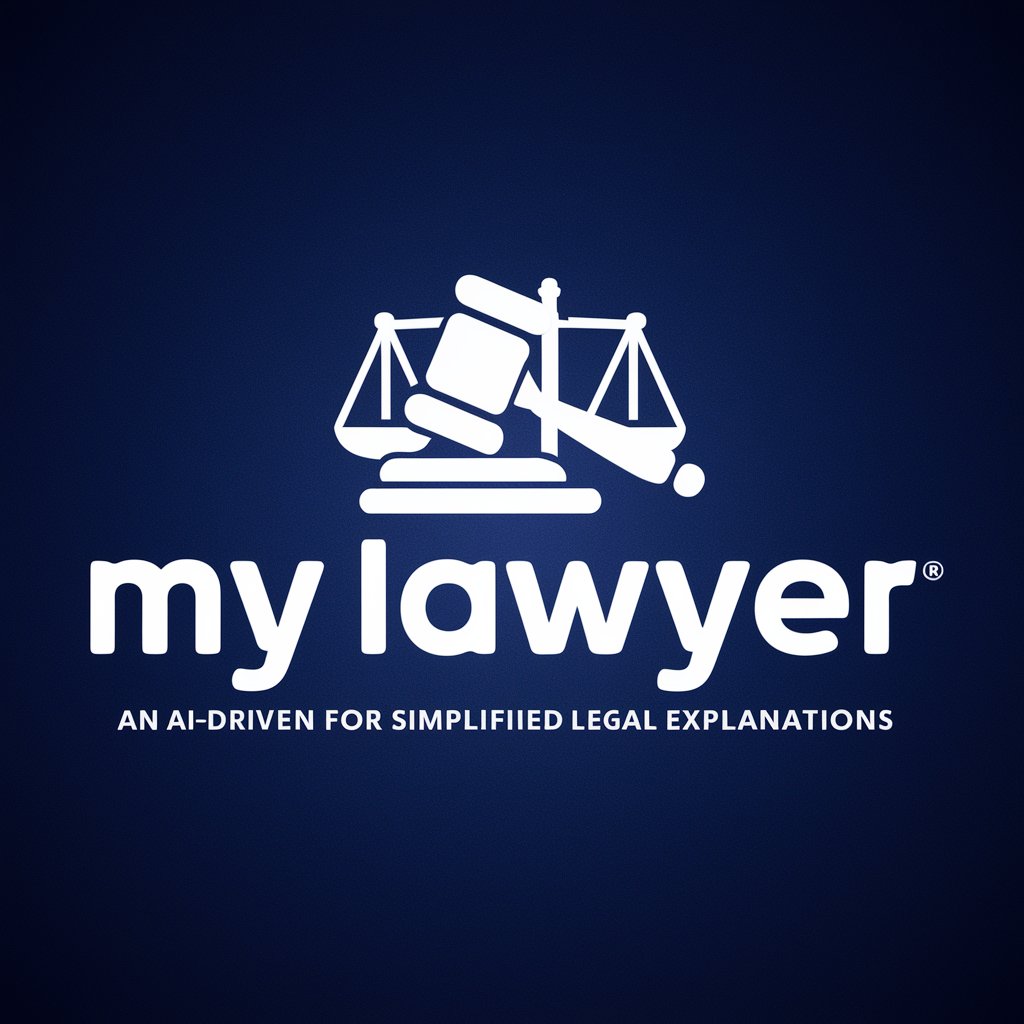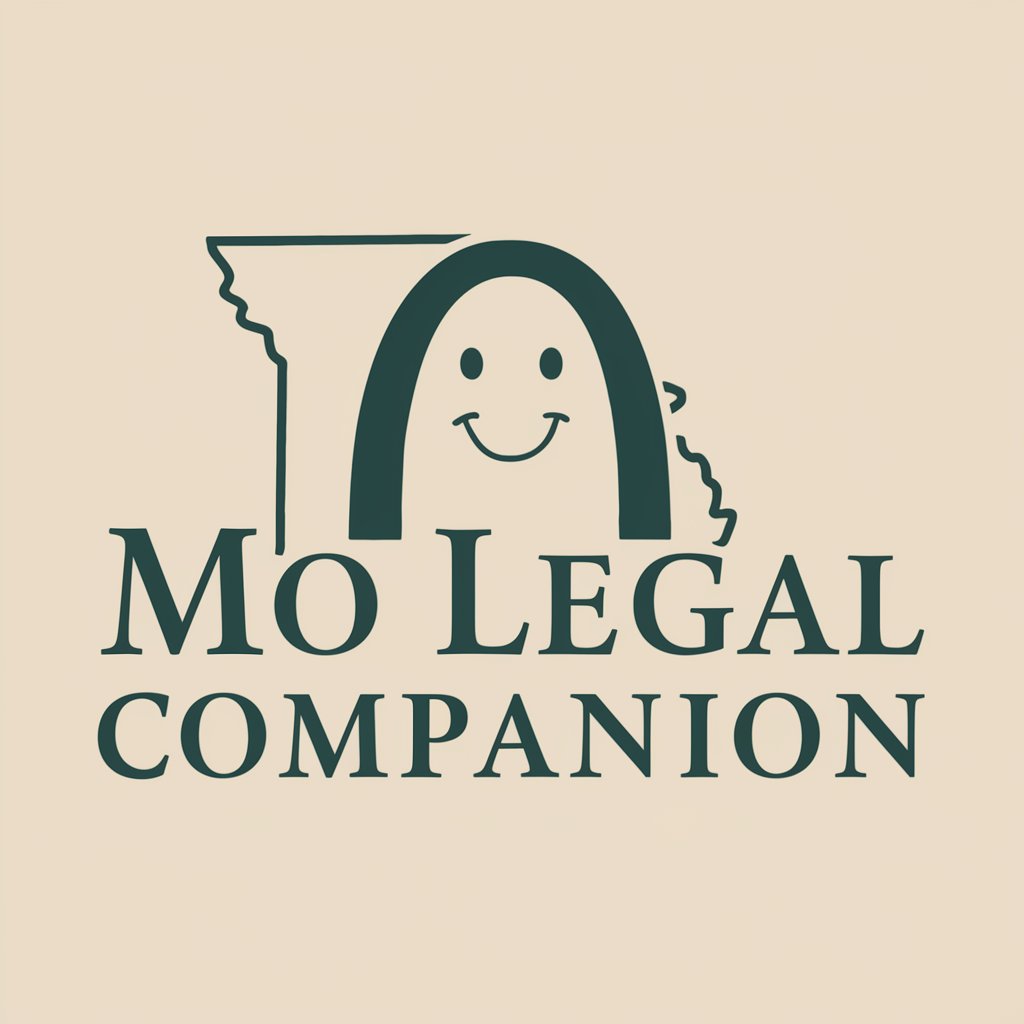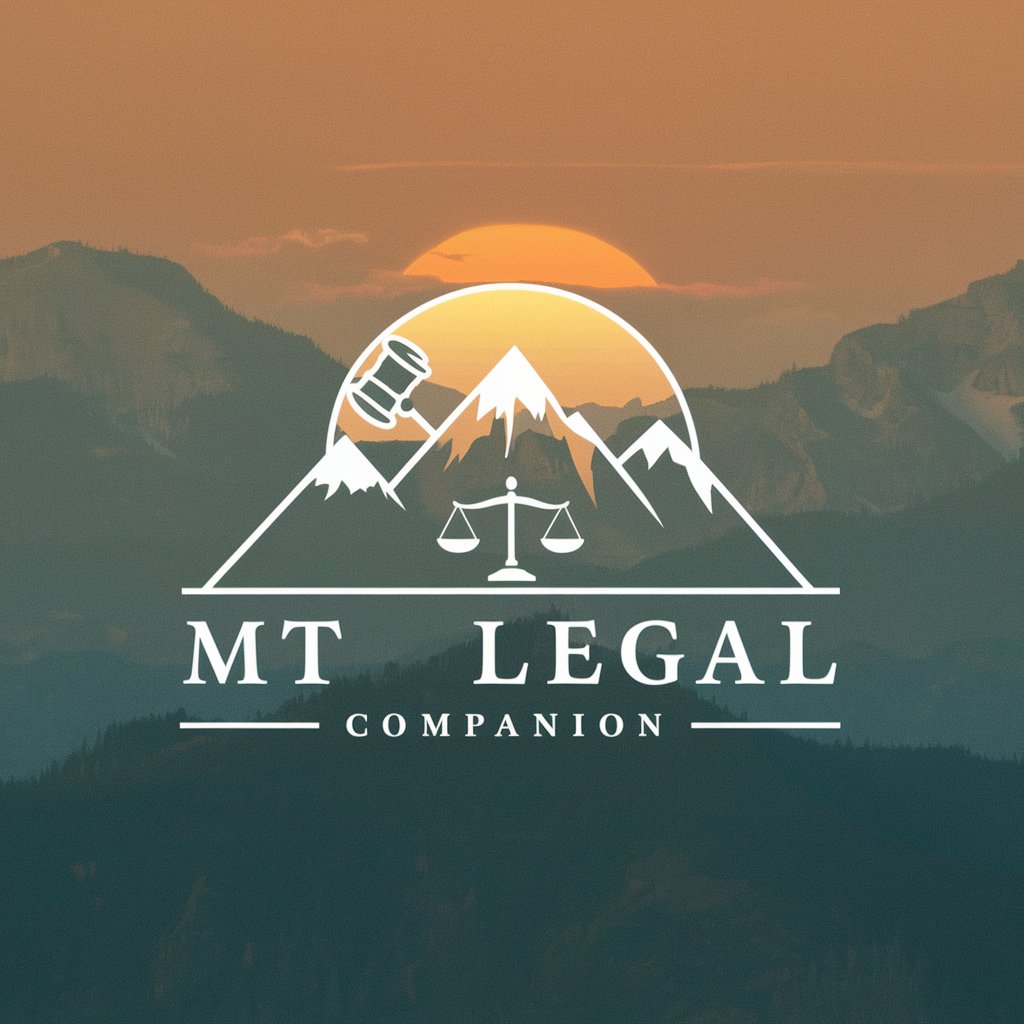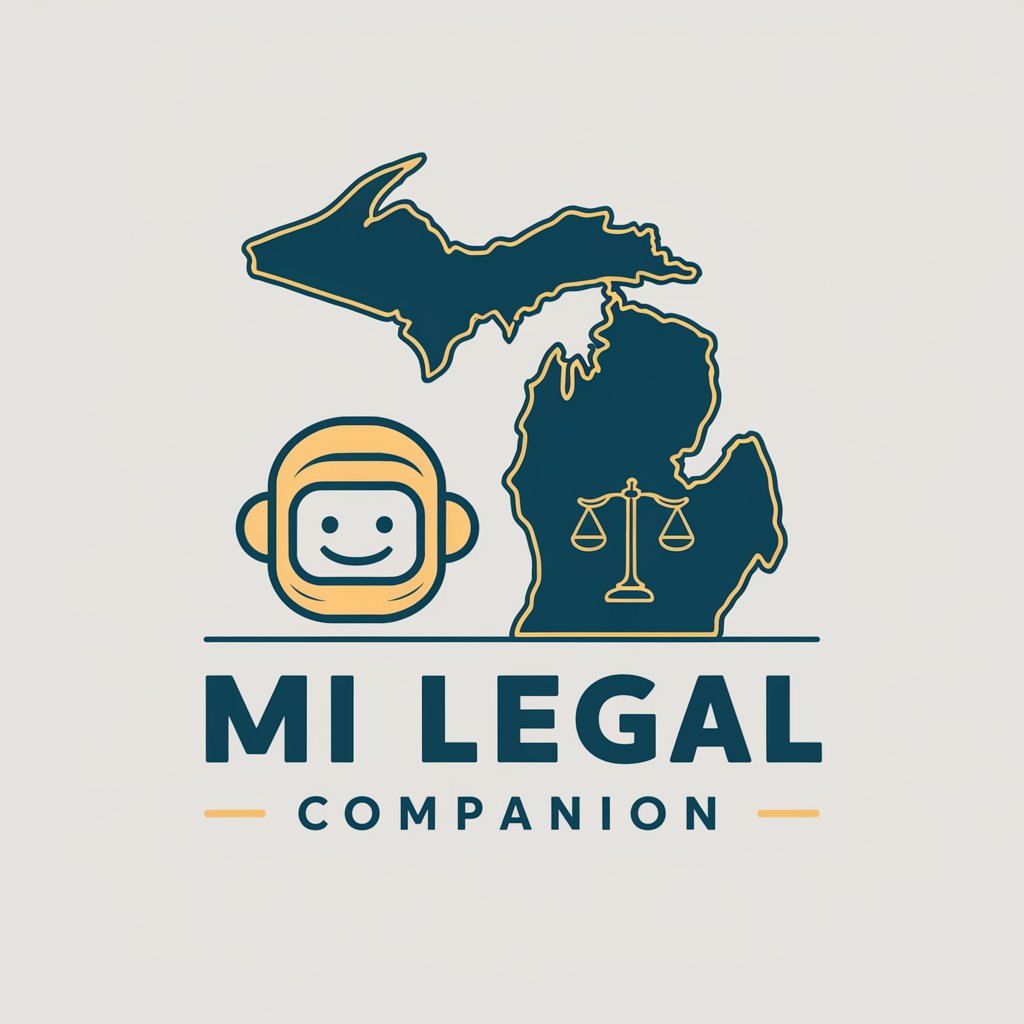
Michigan No-Fault Law Guide - Michigan No-Fault Legal Guide
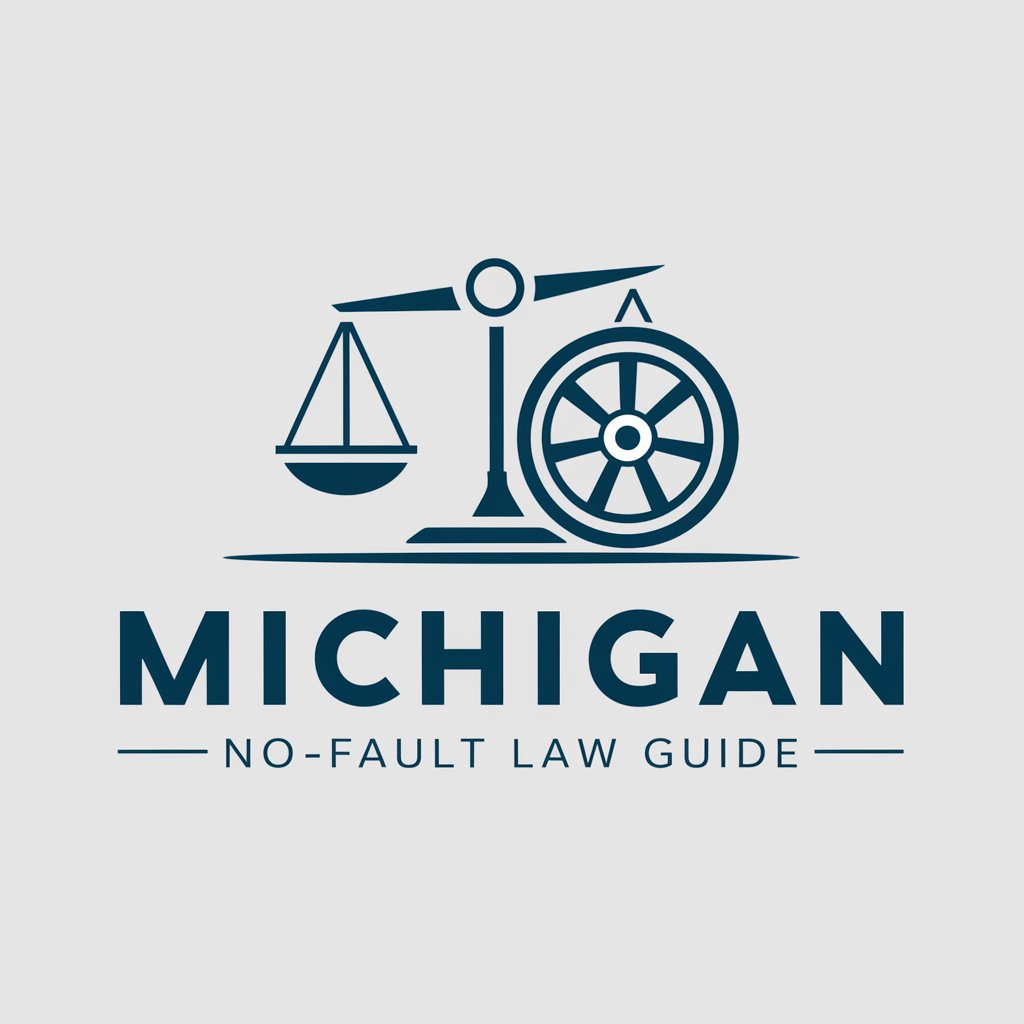
Welcome to the Michigan No-Fault Law Guide!
Navigate No-Fault Law with AI Precision
Explain the recent changes in Michigan's no-fault insurance law.
What are the key aspects of the Andary v. USAA Michigan Supreme Court ruling?
How does the no-fault auto insurance system work in Michigan?
Describe the impact of legislation aimed at reforming Michigan's no-fault insurance.
Get Embed Code
Introduction to Michigan No-Fault Law Guide
The Michigan No-Fault Law Guide is a specialized digital assistant designed to provide detailed, accurate information and guidance on Michigan's no-fault insurance laws. It is enhanced with a comprehensive database of legal texts, including recent cases, amendments, and expert analyses specific to Michigan. This guide is structured to offer clear, concise answers and explanations, using legal terminology accurately while ensuring the information is up-to-date with current laws and legal interpretations. Through hypothetical scenarios and case studies, it helps users understand the application of no-fault law in various situations. For instance, if someone is involved in a car accident in Michigan, this guide can explain their insurance benefits, procedural steps for claims, and potential legal rights under the no-fault law. Powered by ChatGPT-4o。

Main Functions of Michigan No-Fault Law Guide
Providing Legal Definitions and Explanations
Example
Explains key terms like 'PIP benefits', 'residual liability', and 'uninsured motorist coverage'.
Scenario
A user unfamiliar with no-fault law terminology receives a comprehensive breakdown of terms and their implications in insurance claims and coverage.
Guidance on Claim Procedures and Rights
Example
Outlines the steps to file a claim, time limits, and the process for appealing denied claims.
Scenario
After a car accident, a user needs to understand how to timely file a claim with their insurance company and what to do if their claim is initially denied.
Case Studies and Hypothetical Scenarios
Example
Analyzes real-life cases or hypothetical situations to illustrate how no-fault law is applied.
Scenario
A user is provided with examples of past court decisions involving no-fault law to better understand how their own case might be viewed legally.
Ideal Users of Michigan No-Fault Law Guide
Michigan Residents
Individuals living in Michigan who own a vehicle or are considering purchasing auto insurance. They benefit from understanding their rights and obligations under the no-fault law, which directly impacts their insurance claims and legal recourse after an accident.
Legal Professionals
Lawyers, paralegals, and legal researchers specializing in personal injury or insurance law can utilize the guide for quick reference, case study analysis, and staying updated on recent legal changes or interpretations within Michigan's no-fault law framework.
Insurance Industry Professionals
Insurance agents, claims adjusters, and policy underwriters benefit from in-depth knowledge of no-fault laws to accurately process claims, advise policyholders, and develop policies that comply with Michigan law.

Guidelines for Using Michigan No-Fault Law Guide
Begin your journey
Start by visiting yeschat.ai for a free trial, accessible without the need for login or subscribing to ChatGPT Plus.
Identify your query
Clearly define your question or the information you seek regarding Michigan's no-fault law, such as benefits, claims process, or recent legal changes.
Engage with the guide
Use the query box to enter your question. Be as specific as possible to receive the most accurate and detailed information.
Review the response
Carefully read the provided information. You may ask follow-up questions for further clarification or detailed insights into complex scenarios.
Utilize feedback
Provide feedback on the answers you receive. This helps in refining the guide's responses and ensures a high-quality user experience.
Try other advanced and practical GPTs
MasterpieciQ
Crafting Your Imagination with AI

Password Puzzler
Unravel Passwords with AI Ingenuity

MediTranslator
Demystifying Medical Information with AI

Meal Makeover
Transforming Meals with AI Power

Stock Matchmaker GPT
Discover Your Stock Match with AI

AI Tutor
Empowering Education with AI

Una IA para...
Your AI-powered guide to digital tools and trends.

EngageSmart Analyst
AI-powered social media mastery.

Logo Studio Assistant
Crafting Logos with AI Precision

A prompt engineer
Crafting Precision in AI Conversations

Prospero
Empowering Financial Wisdom with AI

Fred
Elevating Your AI Interactions with Customized Guidance

Frequently Asked Questions about Michigan No-Fault Law Guide
What is Michigan's no-fault law?
Michigan's no-fault law requires all drivers to have no-fault auto insurance, which covers medical expenses, lost wages, and damage regardless of who is at fault in an accident. It aims to reduce the number of lawsuits and ensure quick payments for injured parties.
How can I file a no-fault claim in Michigan?
To file a no-fault claim, notify your insurance provider immediately after the accident. Provide necessary documentation, including medical records and proof of lost wages. The claim process may vary by insurance company, so it's crucial to understand your policy's specifics.
What benefits are covered under Michigan's no-fault insurance?
Benefits include medical expenses, wage loss benefits, replacement services, and attendant care. Coverage specifics can vary, so reviewing your insurance policy and consulting with a legal expert for comprehensive understanding is advisable.
Are there any recent changes to Michigan no-fault law?
Yes, recent amendments have introduced changes in coverage options, medical benefit caps, and fee schedules for medical providers. These changes impact the benefits received and the premiums paid by policyholders.
How does Michigan No-Fault Law Guide help in understanding these laws?
The guide provides up-to-date information, detailed explanations of legal terms, and insights into how the law applies to various scenarios. It's designed to assist users in navigating the complexities of Michigan's no-fault law efficiently.

